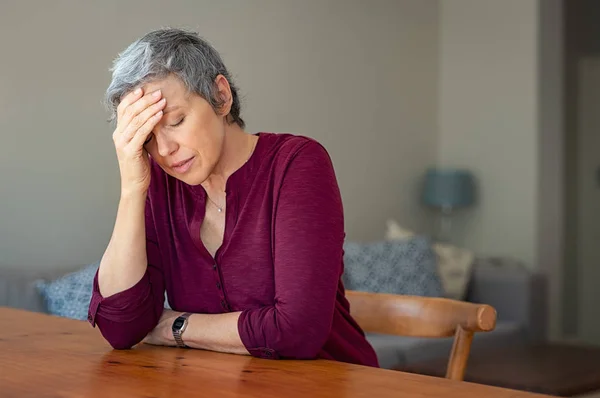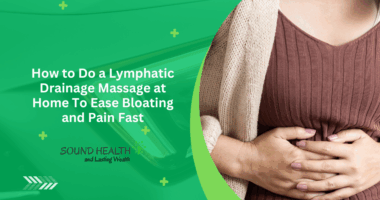For something so universal, menopause is wildly misunderstood. Most women know it’s coming, but few are fully prepared for when it might arrive or how it might unfold. That’s partly because menopause doesn’t follow a clear schedule—and doesn’t look the same for everyone. Hormonal shifts don’t come with a timer, and symptoms don’t arrive with a roadmap. Still, understanding the common timelines and what it means when your body doesn’t fit the mold can offer powerful clarity.
Below, we break down the typical onset of menopause, what defines early or late menopause, and the health implications of both—without the myths, and with expert insight you can trust.

When Does Menopause Start? Most Women Enter It Between 45 and 55
“The official start of menopause is defined as the point when a woman has gone 12 consecutive months without a menstrual period, marking the end of natural reproductive years and the cessation of ovarian hormone production,” explains Kate McLean, MD, MPH, FACOG, Chief Medical Officer at women’s health brand Evvy.
While that may sound clinical, it’s a milestone that varies widely. According to the North American Menopause Society, the average age of menopause in the U.S. is 51, but the transition—also called perimenopause—can begin several years earlier. This prelude often comes with irregular cycles, mood swings, hot flashes, and other hormonal symptoms that may not immediately scream “menopause” but are unmistakably linked to it.
Menopause isn’t a single moment; it’s a process. And for many women, the unpredictability of that process can be more unsettling than the symptoms themselves.
What Is Early Menopause? It’s More Common Than You Might Expect
“If menopause kicks in before age 45, it’s considered early—and it’s more common than you might think, affecting up to 10% of women,” says Will Haas, MD, MBA, Founder & CEO of VYVE Wellness.
There are many reasons a woman might experience early menopause. Some cases are genetic—if your mother or grandmother reached menopause early, there’s a higher likelihood you might too. Other causes include:
- Autoimmune diseases (like rheumatoid arthritis or lupus)
- Certain cancer treatments, such as chemotherapy or pelvic radiation
- Surgical removal of the ovaries
- Smoking, which has been shown to accelerate hormonal decline
For example, Angela, 42, began experiencing severe night sweats and fatigue at 38. Initially chalking it up to stress, she later discovered she was already in perimenopause. Stories like hers aren’t rare—and they underline why awareness matters.
What Is Late Menopause? It Typically Begins After Age 55
“Late menopause is typically defined as starting after age 55,” says Dr. McLean. “While most people go through menopause between 45 and 55, about 5–10% experience it later. It’s not the norm, but it’s certainly not unusual either.”
Late menopause can sometimes be attributed to genetics or certain lifestyle factors, including higher body mass index (BMI) and hormone-related medications. It’s worth noting that later menopause is often linked with prolonged exposure to estrogen, which may have mixed health implications—more on that below.
Some women who enter menopause later report feeling relieved, as it means a longer period of natural hormone regulation. But for others, the prolonged uncertainty and continued periods into their 50s can feel like a biological limbo.
Falling Outside the ‘Normal’ Menopause Window Isn’t Abnormal
Just because your menopause doesn’t arrive on schedule doesn’t mean something’s wrong. Both early and late menopause fall within a medically recognized spectrum, and each carries its own considerations—none of which should be seen as failures or flaws in your biology.
In fact, how and when menopause occurs is influenced by a combination of:
- Genetics
- Reproductive history
- Lifestyle choices
- Underlying health conditions
It’s a deeply individual process. And more importantly, it’s a transition—not a judgment.
Health Considerations if You Enter Menopause Early
Early menopause can come with long-term health implications, especially if left unmanaged. Women who reach menopause before 45 often experience a faster decline in bone density, which increases the risk of osteoporosis and fractures. Additionally, the loss of estrogen at a younger age can raise the risk for cardiovascular disease, cognitive decline, and urinary tract issues.
According to a study published in Menopause, women who enter menopause before 40 have nearly two times the risk of heart disease compared to those who reach it at the average age.
To support health during and after early menopause, medical providers may recommend:
- Hormone Replacement Therapy (HRT) to balance hormone loss
- Calcium and Vitamin D supplementation for bone health
- Routine cardiovascular screenings
- Regular resistance-based exercise
These aren’t one-size-fits-all solutions, but they form a foundation for personalized care. It’s crucial to work with a healthcare provider who takes your age, history, and symptoms into account.
Health Considerations if You Enter Menopause Late
On the flip side, entering menopause after 55 also has unique considerations. While extended estrogen exposure can offer some protective benefits (like stronger bones or improved skin elasticity), it’s also associated with increased risks of breast and endometrial cancers, according to research from the National Cancer Institute.
Women who menstruate into their mid-50s or beyond should be monitored for:
- Endometrial hyperplasia (thickening of the uterine lining)
- Breast density changes
- Hypertension and cholesterol levels
That said, some women experience fewer menopause-related symptoms when their transition occurs later. Their estrogen levels may decline more gradually, creating a gentler shift into postmenopause. It’s a mixed bag—but knowledge gives you a better grip on managing it well.
Final Thoughts: Menopause Is Personal—And That’s Perfectly Normal
There’s no “right” age for menopause. Whether yours begins at 42 or 58, the key is being informed, supported, and proactive. Don’t ignore early signs just because they show up “too soon,” and don’t feel frustrated if your period continues while your peers are well into postmenopause.
Instead, listen to your body. Track changes. Ask questions. And when in doubt, talk to a provider who respects the individuality of your experience.
Because menopause might not follow a script—but your story still deserves to be heard.
FAQ
Q. How do I know if I’m in perimenopause?
Ans: Perimenopause refers to the years leading up to menopause. Symptoms include irregular periods, hot flashes, mood swings, night sweats, and sleep disturbances. These changes can begin 4–8 years before menopause and are driven by fluctuating estrogen levels.
Q. Is early menopause the same as premature menopause?
Ans: No. Early menopause refers to menopause before age 45, while premature menopause typically means onset before age 40. Both require medical evaluation to assess risks and health implications.
Q. Can lifestyle affect when menopause starts?
Ans: Yes. Factors like smoking, body weight, stress levels, and diet can influence hormonal function and impact the age at which menopause begins. For example, smokers often reach menopause 1–2 years earlier than nonsmokers.
Q. Should I get tested to confirm menopause?
Ans: Blood tests that measure hormone levels—such as FSH (follicle-stimulating hormone) and estradiol—can help determine menopausal status. However, a clinical diagnosis is often based on symptoms and menstrual history.
Also Read | 7 Proven Knee Pain Relief Tips Doctors Swear By










